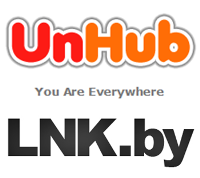 URL shortening services are a dime a dozen, and despite wishes for them to vanish (with good reason) they’re here to stay and more popular than ever given the abundance of social services that thrive on short messages and links. TinyURL and bit.ly appear to be the more popular of the bunch, but we’re seeing other services use their own custom URL shortening services at an increasing rate. To name but a few, Digg uses its top domain for the DiggBar and associated links, Posterous uses post.ly to trim down links when they distribute them to other networks and Twitter toolbox HootSuite uses ow.ly.
URL shortening services are a dime a dozen, and despite wishes for them to vanish (with good reason) they’re here to stay and more popular than ever given the abundance of social services that thrive on short messages and links. TinyURL and bit.ly appear to be the more popular of the bunch, but we’re seeing other services use their own custom URL shortening services at an increasing rate. To name but a few, Digg uses its top domain for the DiggBar and associated links, Posterous uses post.ly to trim down links when they distribute them to other networks and Twitter toolbox HootSuite uses ow.ly.
Update: shame on me for forgetting that TechCrunch also has its ‘own’ short URL (tcrn.ch), which you can view under every post and which we use for our Twitter account. We use awe.sm for this.
The latest startup to add a URL shortening feature to its service is UnHub, which we covered last month. Paste any URL after unhub.com and if you’re registered for the service, you’ll get a custom short URL you can use to distribute links to articles and such. On top of the linked website will be an iframe (yes, yet another one) where you can view the number of Diggs, bookmarks on Delicious, and redirects on bit.ly. You can also tweet, e-mail or share the link on a plethora of third-party services right from the toolbar. It’s also personalized, so people can jump to your own UnHub profile from the persistent bar, or straight to the source link. For an example, go to http://unhub.com/pC16.
Another one that just surfaced (in alpha mode) is Lnk.by, which adds a twist to URL shortening in the sense that you can pick a short URL that suits what you’re linking to i.e. it brings some context to what you’re sharing. You can share music files using Lstn.in, videos with Wach.it, photos with Seee.it and articles with Read.im. The service automatically maps known domains, protocols and file extensions so it will pick the most suitable one without the need for indicating it proactively. Other than that, there’s nothing really noteworthy about the service, apart from the fact it comes with an API and a toolbar bookmarklet, and that it was built by an Endemol executive with a friend in just one weekend.
Feel to shorten the URL for this article with both services and tell us which one you prefer (or why you hate URL shortening services).